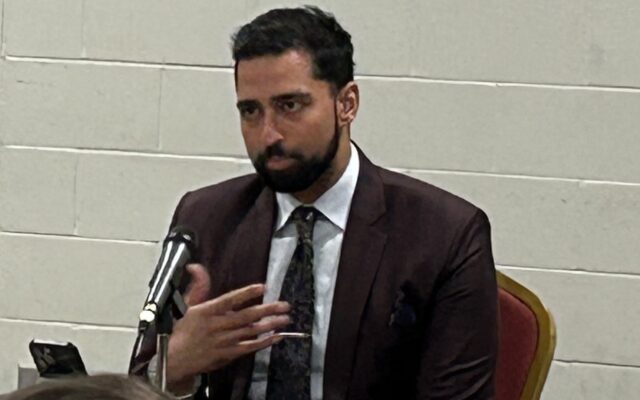Turnout Greater For Opposition Toward Suggested Regulations for Gender-Affirming Care for Minors

LINCOLN–(KFOR Nov. 28)–An Omaha family medicine practitioner resident was among those on Tuesday that testified in opposition during a public hearing over proposed regulations toward gender-affirming care for minors in Nebraska.
Temporary regulations on gender-affirming care would take effect for 90 days starting Oct. 1, avoiding a potential full ban on puberty blockers and hormone therapy that otherwise would have taken effect. That was part of a bill passed last spring by Nebraska Lawmakers, known as the “Let Them Grow Act” or LB 574.
Dr. Paramvijay Dhalla told KFOR News and other reporters after his testimony, these regulations are compromising the autonomy of the people.
“I feel like the United States is a country where people can make their own life,” Dr. Dhalla said. “It’s all about autonomy here. These kind of laws being passed has autonomy compromised.”
Dr. Dhalla says he’s now hesitant to raise his family in a state like Nebraska, if future legislation like this is passed. He’s considered moving his practice to any of the 25 other states that don’t have strict regulations.
The Nebraska Department of Health and Human Services held the public hearing inside the Lancaster Event Center to gain public input over the proposed regulations, which include several waiting periods, patients must live at least six months in their preferred gender, receive at least 40 hours of therapy and wait seven days after having their prescription before obtaining the medication.
William Manhart, who has two transgender children, called these regulations “are discriminatory in nature.”
“For 40 hours of therapeutic intervention that is required by these regulations, I’m looking at a $6,000 bill,” Manhart added. “These regulations do not take into account persons who come from low-income families, who may not be able to afford this.”
Stephanie Biondi of Lincoln testified that the proposed regulations only serve as a barrier to health care.
“It doesn’t line up with the research,” Biondi said. “There is no research that says that this is an effective way to support people in society.”
There were more than 70 people who testified, three of which supported the proposed regulations.






